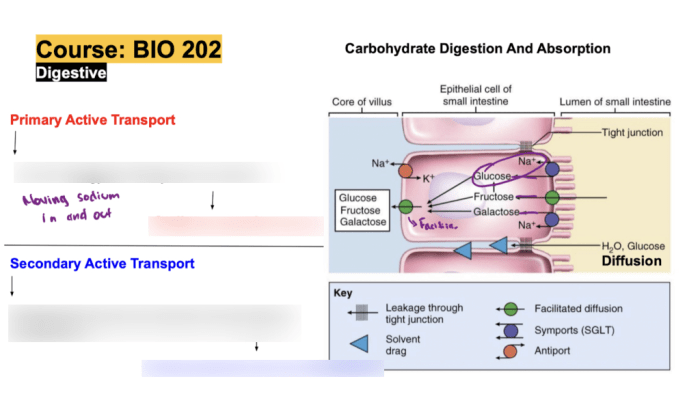Dcf health safety and nutrition – DCF Health, Safety, and Nutrition: Protecting Families and Fostering Well-being
DCF’s health, safety, and nutrition programs play a vital role in ensuring the well-being of families and individuals within the community. These programs provide comprehensive services and interventions to address the unique needs of children, families, and individuals, promoting their health, safety, and nutritional well-being.
DCF Health, Safety, and Nutrition Overview

DCF’s health, safety, and nutrition programs aim to protect and promote the well-being of vulnerable children and families in Massachusetts. These programs provide a range of services to ensure children have access to essential healthcare, live in safe and healthy environments, and receive adequate nutrition.
The target population for these programs includes children who are at risk of abuse or neglect, children with disabilities, and children from low-income families. Eligibility criteria vary depending on the specific program, but generally include factors such as income level, family structure, and the child’s health or safety needs.
Primary Mission and Objectives
- To protect children from abuse and neglect.
- To promote the health, safety, and well-being of children.
- To provide support to families in need.
Target Population and Eligibility Criteria
- Children who are at risk of abuse or neglect.
- Children with disabilities.
- Children from low-income families.
Key Services and Interventions

DCF’s health, safety, and nutrition programs provide a wide range of services and interventions aimed at promoting the well-being of families and individuals. These services are designed to address the specific needs of the population served, including children, families, and pregnant women.
The interventions provided through these programs focus on prevention, early intervention, and support services. They aim to improve health outcomes, ensure the safety of children, and promote healthy nutrition practices.
Health Services, Dcf health safety and nutrition
- Prenatal care and education
- Well-child checkups and immunizations
- Sick child care
- Chronic disease management
- Mental health services
Safety Services
- Child abuse and neglect prevention programs
- Child safety education
- Home safety inspections
- Emergency placement services
- Case management and support services
Nutrition Services
- Nutrition education and counseling
- Supplemental nutrition programs (e.g., WIC, SNAP)
- School breakfast and lunch programs
- Community gardens and farmers’ markets
- Food pantries and soup kitchens
Health and Safety Standards

DCF establishes and enforces comprehensive health and safety standards for child care providers and facilities to ensure the well-being and protection of children in their care.
These standards encompass various aspects of child care environments, including:
Facility Requirements
- Safe and sanitary indoor and outdoor spaces
- Adequate ventilation and lighting
- Appropriate furniture and equipment
- Access to clean water and restrooms
- Regular cleaning and disinfection
Staff Qualifications and Training
- Background checks and references for all staff
- First aid and CPR certification
- Training in child development, health, and safety
- Ongoing professional development
Child Supervision and Care
- Age-appropriate supervision ratios
- Safe and secure play areas
- Emergency preparedness plans
- Policies and procedures for handling accidents and illnesses
- Regular monitoring of children’s well-being
Monitoring and Enforcement
DCF employs a rigorous monitoring and enforcement system to ensure compliance with these standards:
- Regular inspections of child care facilities
- Review of documentation and records
- Interviews with staff and children
- Imposition of sanctions for non-compliance
Nutrition Programs
DCF offers a range of nutrition programs aimed at improving the health and well-being of children and families. These programs provide access to nutritious food, nutrition education, and support services to ensure optimal growth and development.
One of the most well-known nutrition programs offered by DCF is the Supplemental Nutrition Program for Women, Infants, and Children (WIC). WIC provides nutritious food, nutrition counseling, and other support services to pregnant, breastfeeding, and postpartum women, as well as infants and children under the age of five.
DCF’s commitment to health, safety, and nutrition is evident in their diligent efforts to protect children. In the landmark case of Regina v. Cunningham , the court upheld DCF’s authority to intervene when a child’s well-being is compromised. This ruling underscores the importance of DCF’s role in ensuring that children have access to essential services that promote their health, safety, and overall well-being.
To be eligible for WIC, participants must meet certain income and nutritional risk criteria.
WIC Benefits
- Access to nutritious food, including fruits, vegetables, whole grains, milk, and infant formula
- Nutrition counseling and education on healthy eating habits
- Breastfeeding support and resources
- Referrals to other health and social services
Partnerships and Collaborations
DCF collaborates with various partners to enhance its health, safety, and nutrition services. These partnerships foster inter-organizational synergy and enable the effective provision of comprehensive care to children and families.
Key partners include community health centers, hospitals, schools, and non-profit organizations. These partnerships facilitate access to medical care, mental health services, nutrition education, and other essential resources.
Benefits and Impact of Partnerships
- Improved Service Delivery:Partnerships allow DCF to expand its reach and provide services that would otherwise be unavailable. Collaboration with healthcare providers ensures timely access to medical care for children.
- Enhanced Case Management:By working with schools and community organizations, DCF can better coordinate case management and provide holistic support to families.
- Increased Resources:Partnerships enable DCF to leverage the resources and expertise of partner organizations, maximizing the impact of its programs.
- Community Engagement:Collaborations with community organizations foster trust and promote community engagement, leading to improved child well-being.
Data and Evaluation: Dcf Health Safety And Nutrition

DCF utilizes comprehensive data collection and evaluation methods to gauge the effectiveness of its health, safety, and nutrition programs. These methods include:
Data Collection Methods
- Client surveys to gather feedback on program quality and impact.
- Data analysis of case records to track program participation and outcomes.
- Regular monitoring and reporting of key performance indicators.
- Collaborations with external researchers to conduct independent evaluations.
Evaluation Methods
- Process evaluations to assess the implementation and delivery of programs.
- Outcome evaluations to measure the impact of programs on client health, safety, and nutrition outcomes.
- Cost-benefit analyses to determine the efficiency and effectiveness of programs.
Key Findings and Insights
Recent evaluations have yielded valuable insights into the effectiveness of DCF’s health, safety, and nutrition programs:
- Programs have consistently shown positive impacts on client health, including reductions in child abuse and neglect, and improvements in nutrition and physical well-being.
- Programs have been found to be cost-effective, with benefits outweighing the costs of implementation.
- Areas for improvement have been identified, such as enhancing coordination among different program components and increasing access to services for underserved populations.
Essential Questionnaire
What is the primary mission of DCF’s health, safety, and nutrition programs?
To promote the health, safety, and nutritional well-being of children, families, and individuals within the community.
Who is eligible for DCF’s health, safety, and nutrition programs?
Services are tailored to meet the needs of families and individuals, including children, pregnant women, and individuals with special needs.
What types of services are offered through DCF’s health, safety, and nutrition programs?
Services include health screenings, immunizations, nutrition counseling, parenting education, and support for families in crisis.